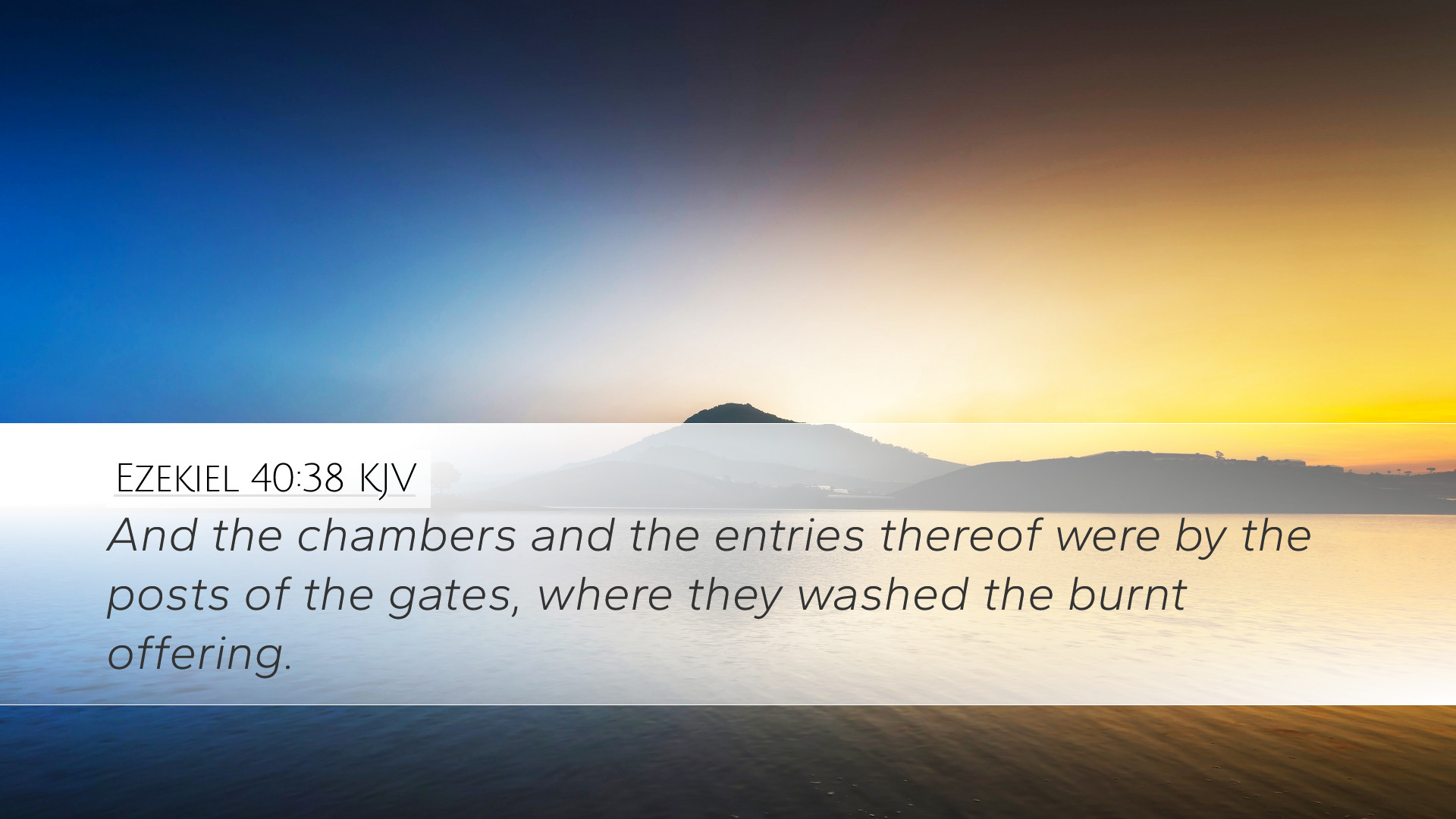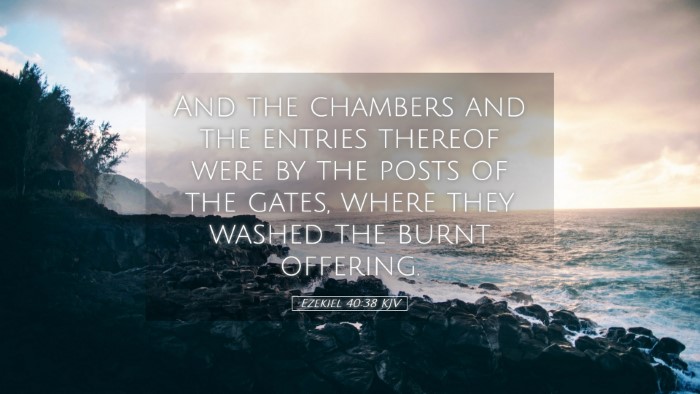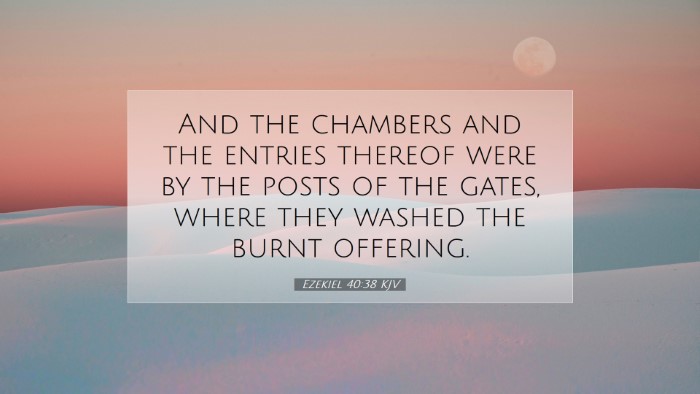Ezekiel 40:38 - Conclusion of the Temple Vision
Ezekiel 40:38 states, "And the chambers and the entries thereof were by the posts of the gates, where they washed the burnt offering." This verse is part of a larger vision provided to the prophet Ezekiel, outlining precise details of the future temple and its functions. The chapter underlines the importance of sacred spaces and divine worship.
Contextual Overview
The vision occurs in a time of exile, wherein the people of Israel yearn for restoration. Ezekiel, as a prophet, is given a panoramic view of a future temple that signifies hope and renewal for Israel. The structure and its rituals highlight the holiness demanded by God and serve as a reminder of His desire to dwell among His people.
Commentary Insights
-
Matthew Henry's Commentary
Henry elaborates on the temple's significance as a dwelling place for God among His people. He emphasizes that the chambers washing the burnt offerings signify purity in worship. The specific mention of these aspects points to the seriousness with which God regards worship and sacrifice, reflecting the relationship between divine holiness and human dealings.
-
Albert Barnes' Notes on the Bible
Barnes notes the operational dynamics of the temple and the significance of the rites performed therein. By detailing the washing of burnt offerings, he draws attention to the need for consecration and preparation before approaching God. This act symbolizes an inward reality—repentance and sanctification necessary before offering oneself in worship.
-
Adam Clarke's Commentary
Clarke provides insight into the liturgical practices surrounding the temple's sacrifices. He underscores that the chambers mentioned were strategically placed to facilitate the washing process, ensuring the ritual's integrity. This process indicates God's concern for the purity of offerings, while also affirming the communal aspect of worship, where the Israelites were required to come together in worshipping the Lord.
Theological Implications
The verse highlights key theological themes that resonate throughout the scripture:
-
Sacred Space
The detailed description of the temple emphasizes the concept of sacred space where God meets His people. It reflects the separation of the holy from the profane and serves as an encouragement for believers to approach God with reverence.
-
Holiness and Purity
Washing burnt offerings illustrates the seriousness of holiness in worship. It emphasizes that God requires His people to be clean, both physically and spiritually, before participating in divine communion.
-
Restoration and Hope
The vision of a new temple serves as a metaphor for Israel’s hope for restoration following a period of exile. It points toward God's faithfulness to his covenant and His intention to renew His relationship with His people.
Practical Applications
This verse and its implications offer valuable lessons for modern readers:
-
Preparation for Worship
Just as the Israelites had processes for preparing offerings, believers today should engage in self-reflection and repentance before worship, understanding that purity of heart and mind is essential when entering God’s presence.
-
Communal Worship
The aspect of washing and preparation encourages communal responsibility among believers. Modern churches should cultivate a culture of collective spiritual health and preparation for worship.
-
Hope in Restoration
As Christians reflect on Ezekiel’s vision, they can find encouragement in God’s promise of restoration. No matter the circumstances, believers are reassured of God's unyielding love and His commitment to renewal.
Conclusion
Ezekiel 40:38 invites theologians, pastors, and students of the Word to contemplate the profound significance of worship, sacrifice, and divine presence. Through the lens of public domain commentaries, we glean valuable insights that enhance our understanding of God’s holiness, the seriousness of worship, and the hope for restoration that echoes through scripture. As such, believers are called to approach God with reverence, intentionality, and faith in His redemptive plans.


